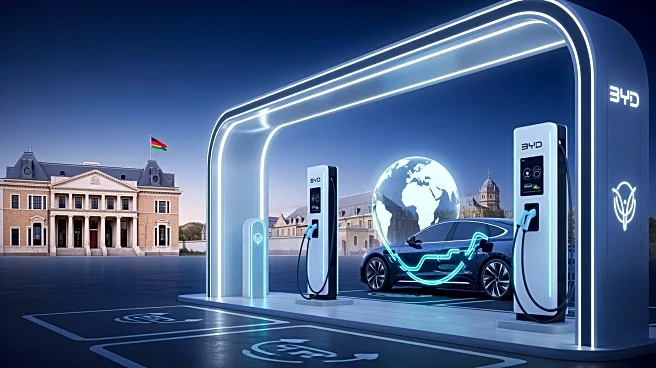What's Happening?
BYD, a leading electric vehicle manufacturer, is significantly expanding its flash charging network across Europe and South Africa. The company plans to establish several hundred charging stations in Europe by
mid-2026, with 200 to 300 stations expected by the end of the second quarter. In South Africa, BYD aims to install 200 to 300 flash charging stations by the end of next year, covering major highways and expanding beyond urban centers. These flash chargers, capable of delivering up to 1,000 kW of power, are designed to alleviate charging anxiety by reducing charging times to match those of refueling petrol vehicles. The expansion is part of BYD's strategy to support its premium Denza brand and enhance electric vehicle adoption globally.
Why It's Important?
The expansion of BYD's flash charging network is a significant development in the global electric vehicle (EV) market. By providing ultra-fast charging solutions, BYD addresses one of the main barriers to EV adoption: charging time. This move not only strengthens BYD's position in the EV market but also supports the broader transition to electric mobility. The deployment of these chargers in Europe and South Africa could accelerate the shift away from fossil fuels, reduce carbon emissions, and promote sustainable transportation. Additionally, the integration of solar energy in powering these chargers in South Africa highlights a commitment to renewable energy solutions, potentially influencing other regions to adopt similar strategies.
What's Next?
BYD's expansion efforts are likely to prompt responses from other automakers and charging infrastructure providers, potentially leading to increased competition and innovation in the EV charging sector. As BYD continues to grow its network, it may explore further partnerships and collaborations to enhance its market presence. The success of this initiative could encourage BYD to consider establishing manufacturing facilities in new markets, depending on demand and market understanding. Stakeholders, including governments and environmental groups, may support these developments as they align with global sustainability goals.











